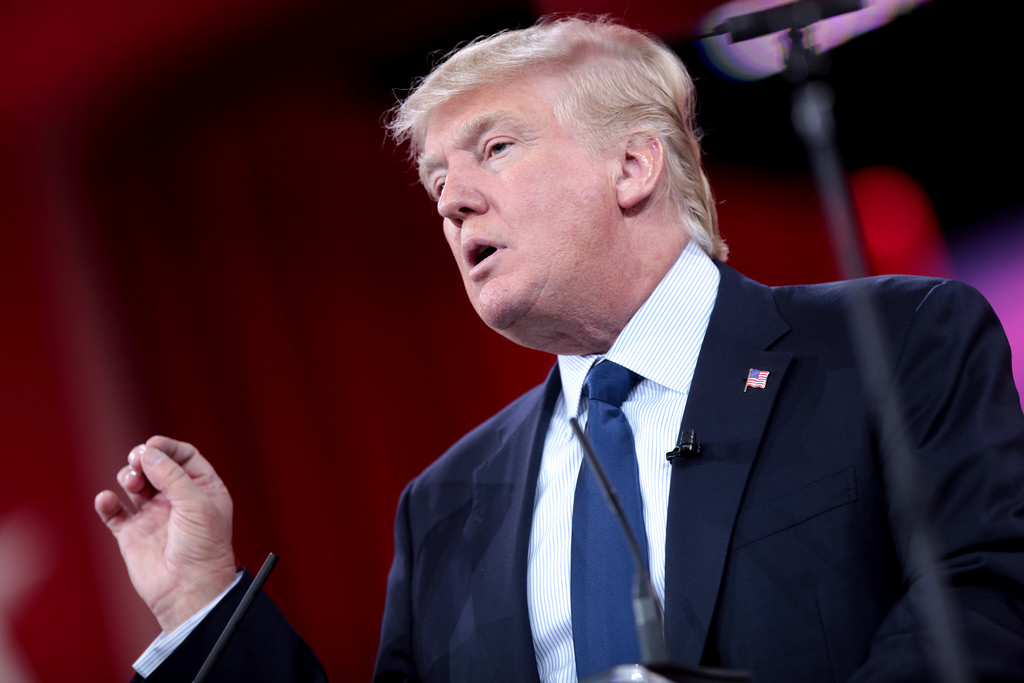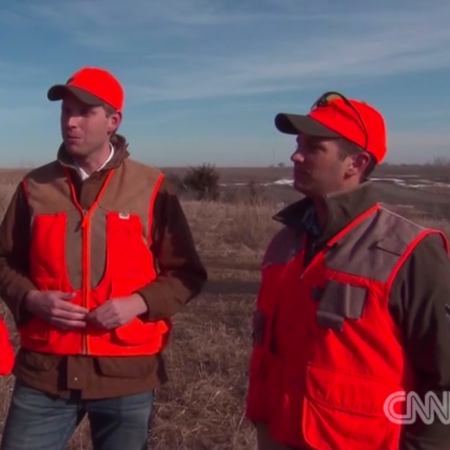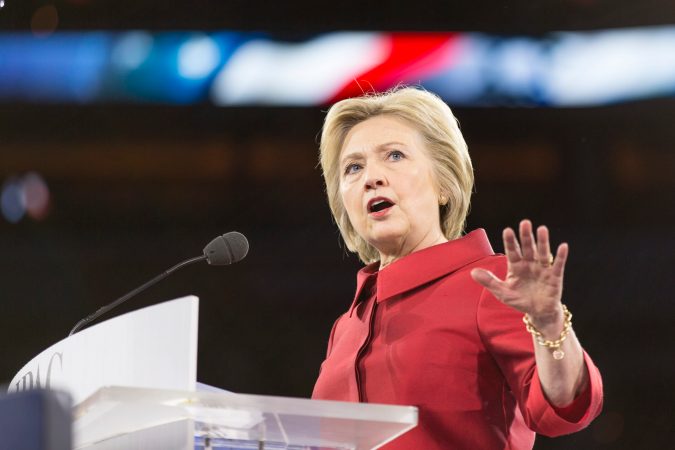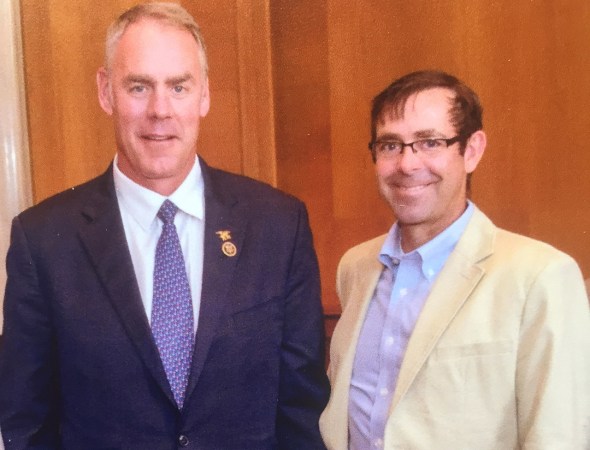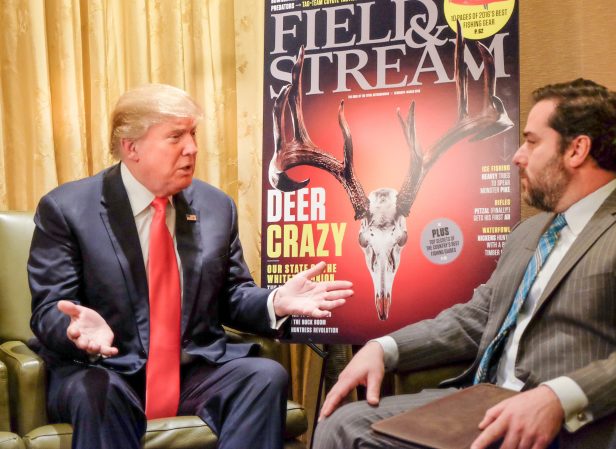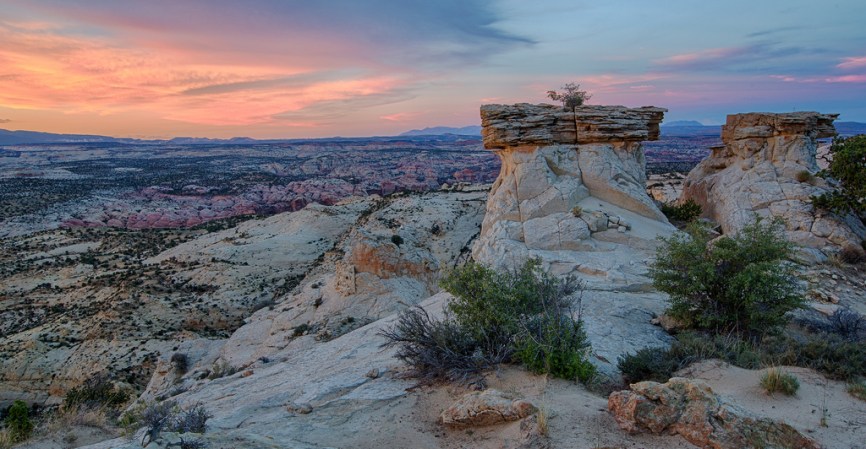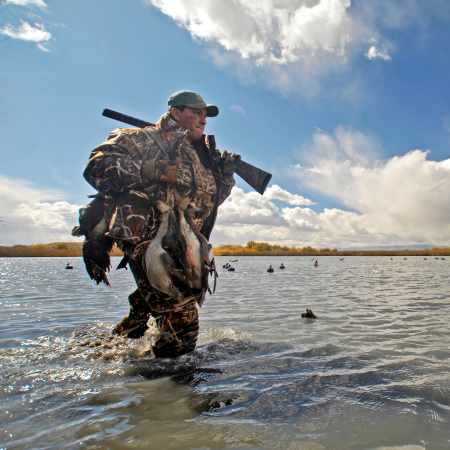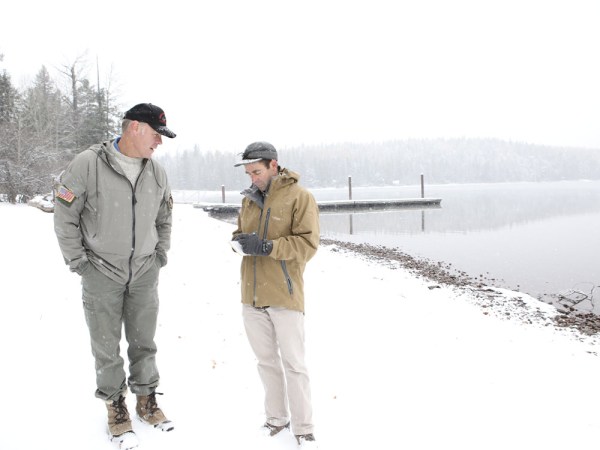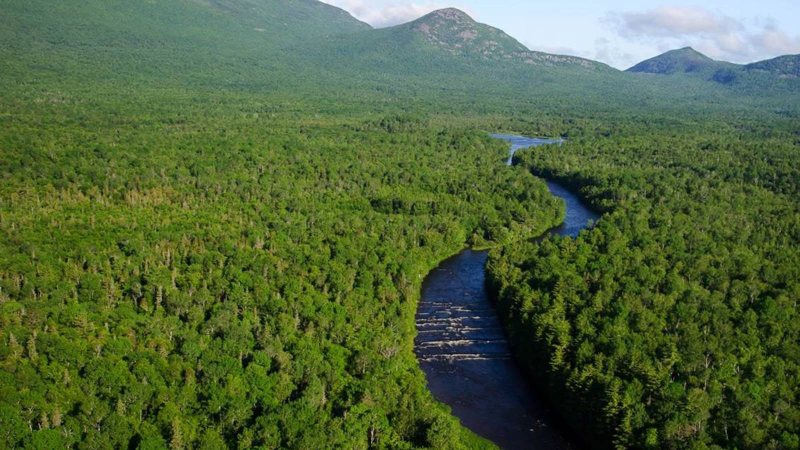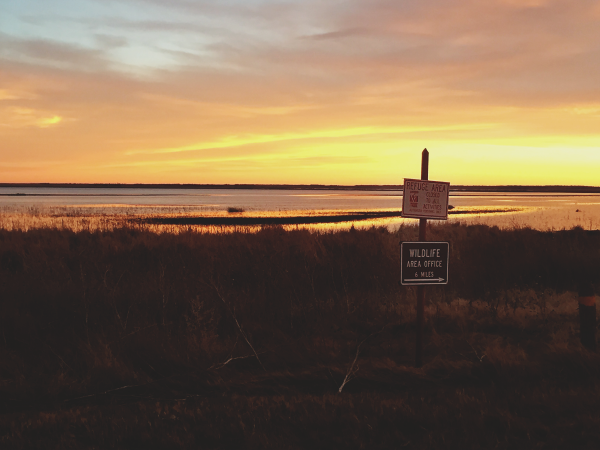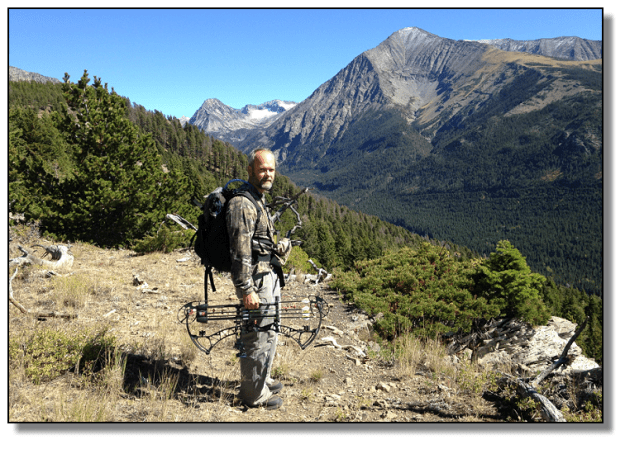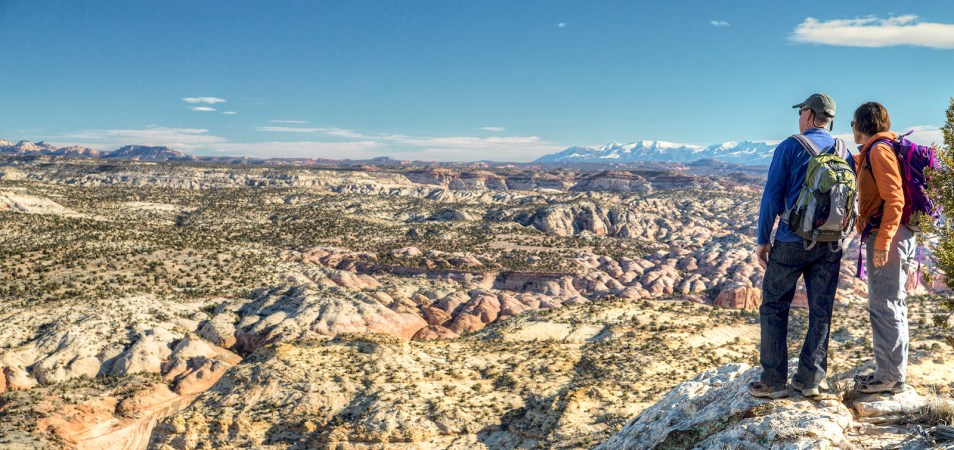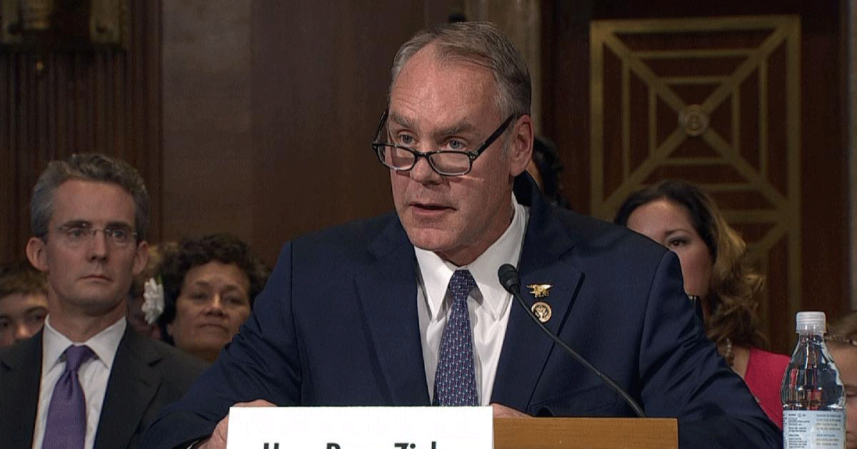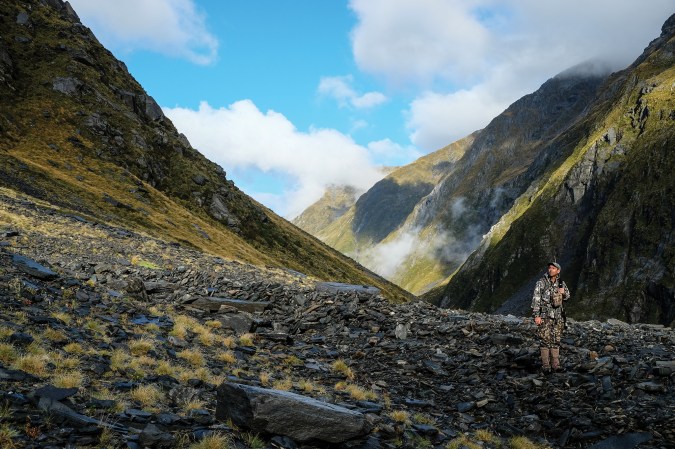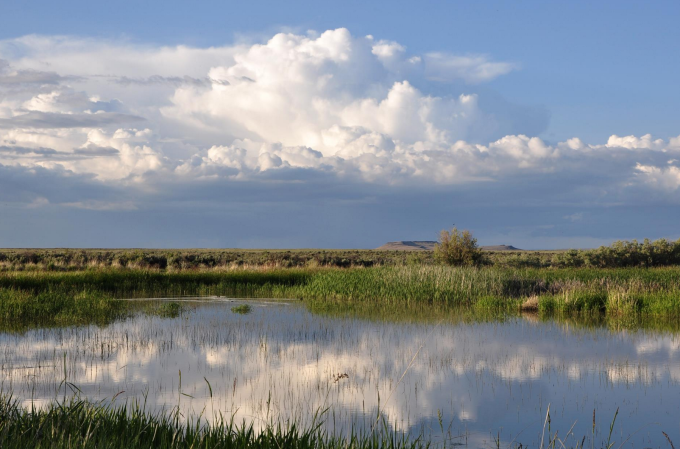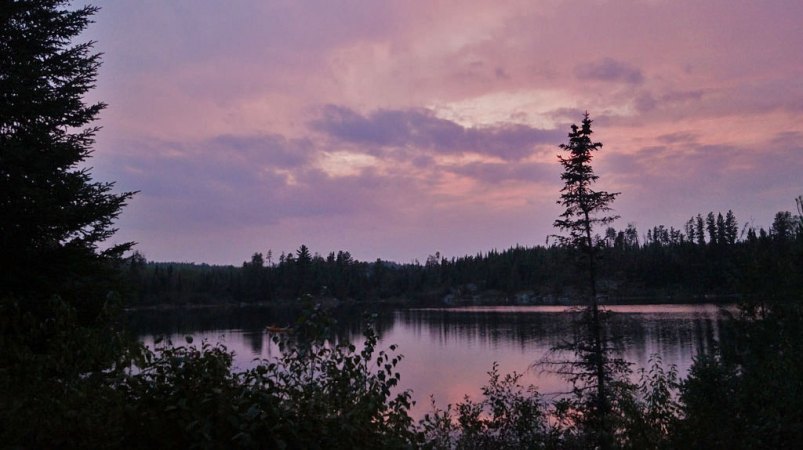Donald Trump’s adult sons, Don Jr. and Eric, are hunters and fishermen. There are other sportsmen in his campaign. They have already been talking about how a Trump administration’s policies would impact our public lands, waterways, wildlife and more. They say a Trump administration would be filled with people who have strong records in the business community, but that their business experience would be tempered by the sportsman’s love for the natural world.
Sounds lovely, but what does any of that mean?
For answers we reached out to Donald Trump’s sons, Don Jr. and Eric, and to others in his campaign.
To start, I asked Don Jr.: “Why should sportsmen believe that you’ll be able to advise your father on issues important to them?”
Now, Don Jr. has one of those minds that seems to be sprinting all the time. As if to keep up, he has a New Yorker’s habit of speaking fast, as in a spokesperson-reading-the-warning-at-the-end-of-a-new-drug-commercial fast. But this question knocked him silent for a full two seconds before he said with emotion in his voice, “My father and I are close. He has a profound respect for the sportsmen in this great country; some of this he learned firsthand over the decades from Eric and I. We’d come back with wild game meat and stories of the forest and how we love it.”
I broke in with “I hit a nerve.”
Don Jr. laughed and said, “When my father wins the presidency, I’ll be here in New York with my brother and sister helping to run our international company. But the one thing I will have his ear on are the issues related to conservation and our sportsmen’s heritage. I will help vet who he will nominate to run the Department of the Interior—I know who all the right people are to ask for insight and perspective on this and they will be privately asked to weigh in. I will be there to make sure the people who run the U.S. Fish and Wildlife Service and so on know how much sportsmen do for wildlife and conservation and that, for the sake of us all, they value the North American Model of Wildlife Conservation. I can tell you, as a sportsman, you don’t want Hillary Clinton putting radical environmentalists in those positions—and that’s what I think she would do.”
That certainly happened in Bill Clinton’s administration. In early 2000, when I was an editor for Outdoor Life, I interviewed President Bill Clinton’s director of the U.S. Fish and Wildlife Service (USFWS), Jamie Rappaport Clark, after the USFWS had been caught misappropriating funds. The USFWS had taken money generated by the Pittman-Robertson Tax that hunters and gun owners pay when they purchase guns and ammo. Some of this money was allegedly used to pay for the wolf reintroduction in Yellowstone and surrounding areas. Congress passed legislation to prevent this from ever happening again. When Bill Clinton left office, Clark went on to a job at the animal-rights group Defenders of Wildlife. She is now its president and CEO.
Don Jr. went on to say, “Wouldn’t it be great to bring in a sportsman to run the U.S. Fish and Wildlife Service and a conservationist (not a radical environmentalist) in to run the U.S. Forest Service? How about bringing a real farmer or rancher in to run the Department of Agriculture? What about having a farmer or rancher head the EPA? My dad will bring people into government who will be leaders, who will provide focus and direction for these departments and agencies and who will get these departments and agencies to focus on their missions rather than on advancing some political agenda.”
Land Management and Economic Growth
Okay, Don Jr. is certain that, thanks to him and Eric and others around him, a Donald Trump administration would nominate people who understand and appreciate the sportsmen’s role in conservation. But what about policies pertaining to energy development on public lands, climate change, clean water and more?
Don Jr. said, “I have met with the members of Congressional Sportsmen’s Caucus and have their counsel on outdoor and land-management issues. There are also several seasoned advisors on the campaign staff who come from strong outdoor sports backgrounds who I prefer not to name, but these are people who have been instrumental in the campaign from its start and are people that my dad, Eric and I trust. We trust them because they have a clear picture of what ought to be done in land management, wildlife management and resource management throughout the country. We have been discussing in some detail how we might change the culture of land management in the United States, particularly in our Western states. These advisors are also successful business people who understand the balance necessary to keep our economic growth and resource preservation on the same level.”
When asked, then, how a Trump administration would work with conservation groups as it deals with issues like energy development on public lands, Dr. Sam Clovis, national co-chair and chief policy adviser for Trump’s campaign, said, “There are some excellent case studies on how energy development can go on at the same time wildlife and resource preservation efforts are advanced. The state of Utah is a great place to start. Coal and oil development have gone on at the same time tens of thousands of acres of habitat have been restored for wildlife of all types. There is no reason we cannot achieve our goal of energy independence while advancing preservation of wildlife and other resources. By empowering the states and bringing together advocacy groups to achieve mutual interests, we can change the culture of land management in the United States.”
Federal Land Transfers
When asked if a Trump administration would favor transferring control of some public lands from federal to state control, Don Jr. said, “States should share in the governance of public lands. States should have access to public lands but cannot be allowed to sell public lands just for short-term revenue gains that may cost sportsmen and women access to the lands. This is why shared governance is so important. Shared governance will be especially critical when we pursue our goal of energy independence in America. As has been proven in several of our Western states, energy exploration can be done without adverse affects on wildlife, fisheries or grazing. To accomplish this the states must have a much greater say in land management. Again, common sense ought to guide our policies.”
Again, that sounds inclusive and nice, but what do they mean by “shared governance” of public lands?
Don Jr. said, “Shared governance means that no decisions will be made on the disposition or actions related to public lands without consultation with state and local officials. We would form a commission to completely revamp the management structure of public lands with a review of the Department of Interior, Department of Agriculture and Department of Energy management structures.”
Don Jr. and Clovis explained that this commission, appointed by the president and approved by Congress, would have similar authority to the Base Realignment Commission that helped manage the draw down of U.S. military bases in the United States and around the world. This commission would make recommendations and Congress would have an up or down vote on their recommendations.
“This would allow governors, state legislators and local officials,” said Don Jr., “to have a say in what happens to the public lands found in their jurisdictions. Also, wildlife and fishery management would be given to state authorities except for migratory animals.”
They say local elected officials, working with federal officials, would have input on rules and regulations that affect grazing, wildlife habitat, our streams and more. They believe this would reduce the friction between far-off federal bureaucrats in Washington, D.C., and local officials and residents. It would give local communities, in the rural West for example, more of a say in what happens in their neighborhoods. But, they stress, they’re not talking about transferring public lands to state control for sale or other purposes.
Energy Development
So, then, would a Trump administration green light the Keystone pipeline?
Clovis said, “Yes, a Trump administration would support the Keystone pipeline and would allow the prudent and thoughtful development of energy resources wherever they may be found. This is all possible while wildlife and fisheries are protected. We have great examples how this can be done and we should trust our states, governors and state legislatures to manage more of our public lands.”
Would a Trump administration back the Farm Bill’s conservation tenets?
Don Jr. said, “Conservation should be at the forefront of any public policy related to agriculture and land management.”
Climate Change
This question led to an important political question on where Trump is on the whole climate change debate. Don Jr. said, “My dad is a climate change skeptic and will reserve judgment until such time as there is more scientific evidence to support the notion that man’s actions are responsible for climate change. The climate has always been changing due to many factors.”
Reexamining The Endangered Species Act, Clean Water Act and Others
It is often difficult to get a campaign to give specifics on policy, but it is often worth asking for specifics because evasive answers can tell a lot. However, when asked if there are specific regulations pertaining to forestry, wildlife, water, resource development and so on that a Trump administration would like to reduce or redo, Don Jr. said that “at a minimum, we think the following should be examined and re-evaluated: the Federal Land Management Policy Act, the Endangered Species Act, the National Environmental Policy Act, the Clean Water Act, the Equal Justice Act and the Wild Horse and Burro Protection Act.”
Though Donald Trump, and many in his campaign, have spent their careers in the private sector, they point out that their many development projects constantly bring them into contact with federal agencies and laws and regulations related to conservation.
In 2006 Donald Trump gave 436 acres in New York’s Westchester and Putnam Counties to the state for a public park. Trump donated the land after he was unable to gain town approvals to clear ground and establish a private golf course. Don Trump Jr. says, “This park is an example of my father’s love of conservation.” And then he said half joking, “I actually had mixed feelings about him giving away this land, as I was hunting there.”
Some of Trump’s critics note that, after Trump couldn’t develop the land, he gave it away to get a tax write-off; still, it’s unclear whether such a tax write-off earned him more than a private sale of the land would have. What is clear is the park quickly became a symbol for government ineptitude and, during this campaign season, the gift has been thrown back in Trump’s face.
There is a sign on New York State’s Taconic State Parkway pointing people to Donald J. Trump State Park, but the state decided it couldn’t afford maintaining the park in 2010. Some have noted that closing the park is odd, considering that the operating budget for the park was only $2,500 a year and it was maintained by workers from the nearby Franklin D. Roosevelt State Park. As the property was sitting unused by the public, Trump threatened to take the land back, but alas the state wants to keep it. As this is being written the park remains officially closed and is not listed on the New York State Office of Parks, Recreation and Historic Preservation park locator. In late 2015, New York State Senator Daniel Squadron introduced the “Anything But Trump Act” to change the park’s name.
Frank Miniter is the author of “This Will Make a Man of You—One Man’s Search for Hemingway and Manhood in a Changing World.”
